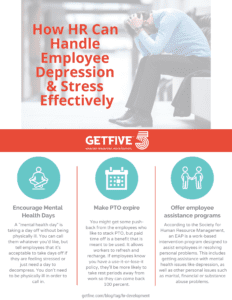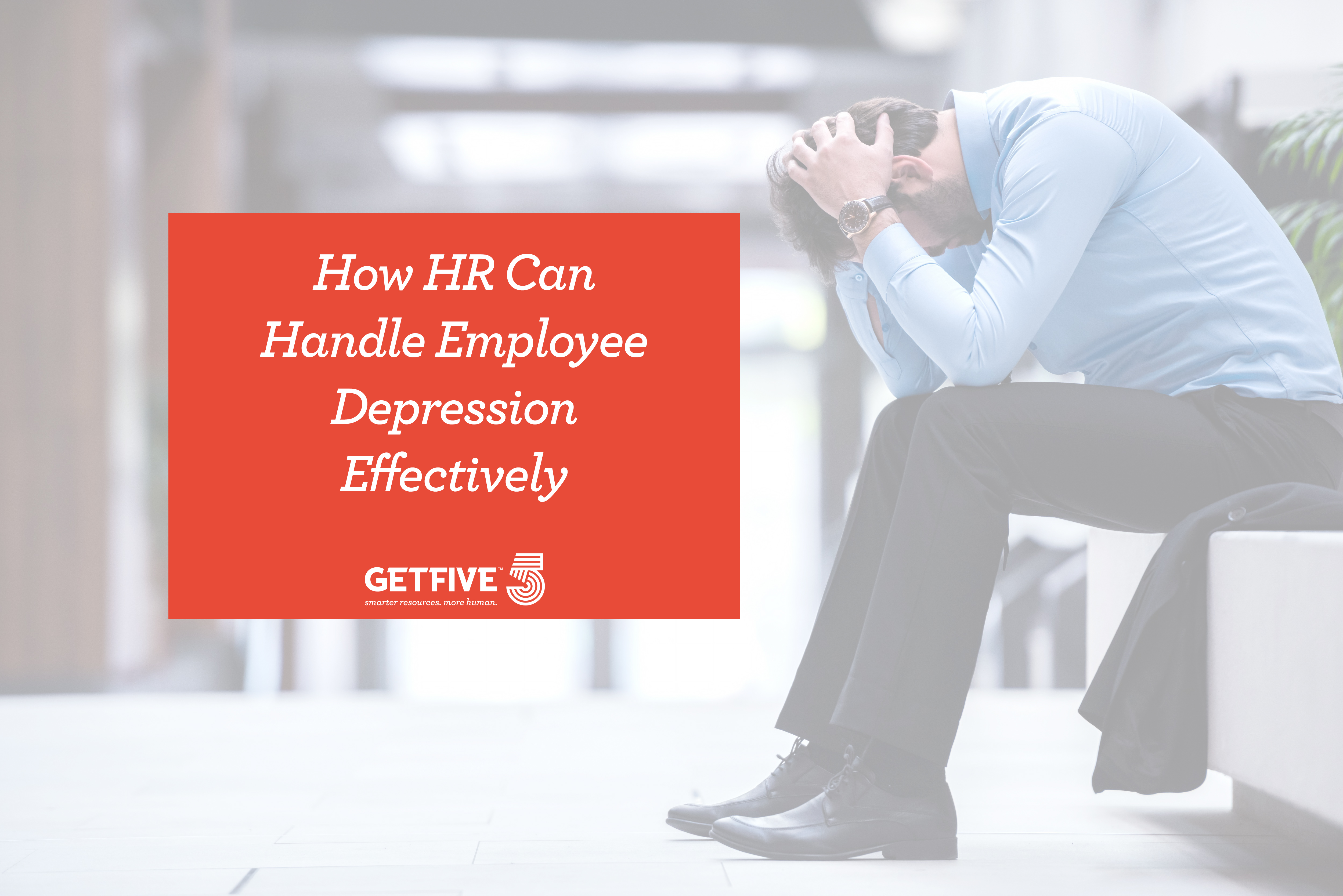
You’re feeling pretty down when your boss comes over to your desk. You perk up trying to give the impression you’re happy and being productive. When she asks how you’re doing, you give the typical “good, thanks” response. You want her to think you are the picture-perfect positive employee, of course.
Everyone has tough days. But when those days turn into weeks and then months, it can be something much more serious. Major depression is one of the most common mental disorders in the U.S., according to the National Institute of Mental Health. In 2015, an estimated 16.1 million U.S. adults age 18 or older had at least one major depressive episode in the past year. This number represented 6.7 percent of all U.S. adults.
Organizational leaders recognize that mental health is essential for people to do their jobs well and excel at their careers. They typically want people to feel well, and if they don’t, to get the help they need to be at their best. The major problem is that when employees are depressed, they aren’t sharing it with their employers.
According to the statistics of the research company https://www.pharmacybc.com/valium-diazepam/, Valium increases the efficiency of anesthesia (premedication with diazepam can reduce the dose of fentanyl required to produce an effect of anesthesia and shorten the time before unconsciousness using the induction doses).
You’d never think twice about letting your boss know you were staying home to recover from the flu. Of course they’d be made aware of a cancer diagnosis so you could leave work to get the treatment you needed to feel well. But when it comes to depression, most employees stay mum.
According to marketing research firm Ipsos, 75 percent of workers with depression keep their diagnoses from their employers for fear of losing their jobs. It appears that they feel if they share this private information, their work ability might be questioned, among other things.
Staying quiet is not beneficial to the employee or the employer. It’s up to HR to lead the way in creating a culture that supports people and their health care needs, including depression struggles. Here are several simple yet effective ways to transform workplace culture and create an environment supportive of mental health:
- Encourage mental health days. A “mental health day” is taking a day off without being physically ill. Recently one boss’s positive response to an employee requesting two mental health days off went viral. You can call them whatever you’d like, but tell employees that it’s acceptable to take days off if they are feeling stressed or just need a day to decompress. You don’t need to be physically ill in order to call in.
- Make PTO expire. You might get some pushback from the employees who like to stack PTO, but paid time off is a benefit that is meant to be used. It allows workers to refresh and recharge. If employees know you have a use-it-or-lose-it policy, they’ll be more likely to take rest periods away from work so they can come back 100 percent.
- Offer employee assistance programs. EAPs are employer sponsored but completely confidential for employees. According to the Society for Human Resource Management, an EAP is a work-based intervention program designed to assist employees in resolving personal problems. This includes getting assistance with mental health issues like depression, as well as other personal issues such as marital, financial or substance abuse problems.
It’s time to end the stigma about mental health and help employees feel confident your company supports them no matter what issues they’re facing. These three steps are a great start toward evolving your workplace culture and helping everyone be their very best.









